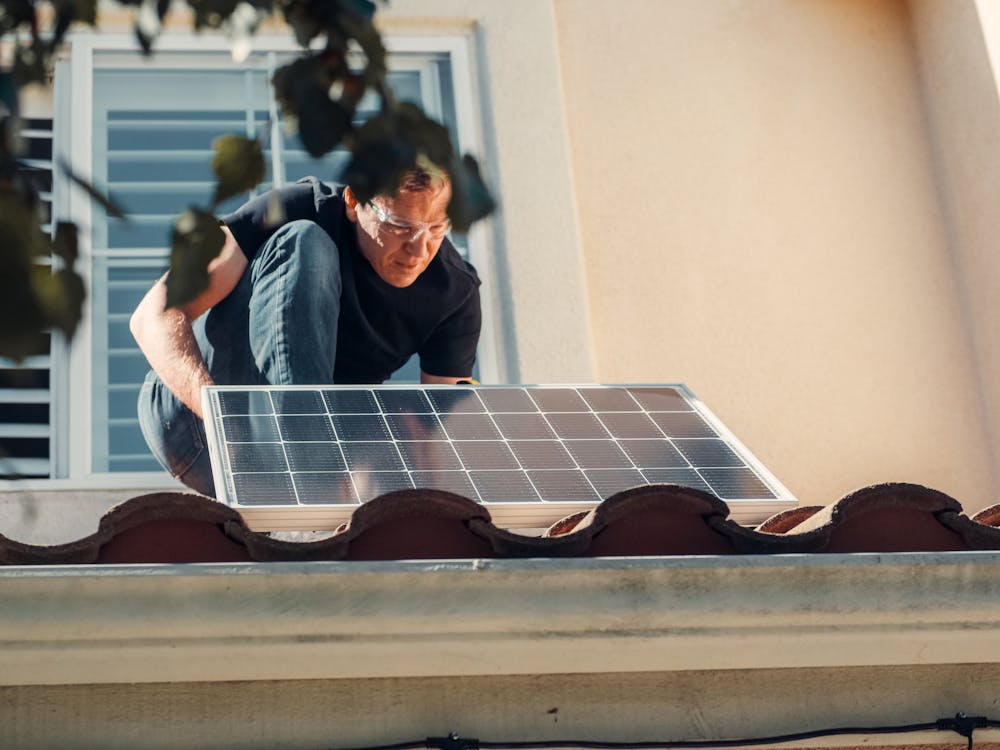Solar energy is rising in popularity as people become more aware of the need to switch to renewable sources of power. One of the most fascinating recent developments in solar energy is solar flow energy.
This novel setup combines the efficiency of conventional solar panels with the dependability of modern battery technology to produce a renewable energy source with far-reaching potential.
Solar flow energy allows you to collect solar energy during the day, convert it into usable electricity at night, and keep it stored in batteries for use whenever you need it.
This means that even when the sun isn’t out, you may still benefit from clean, renewable energy.

In this article, we’ll go over what solar flow energy is, how it works, and how it can help you cut costs on your energy bills and your carbon impact. Come explore the world of solar flow energy with us and learn how this innovative technology is transforming the way we generate and distribute electricity.
What Is Solar Flow Energy?
Solar flow energy is a renewable energy system that improves upon the efficiency and dependability of conventional solar panels by incorporating energy storage technologies.
Solar panels soak up the sun’s rays and turn them into useful electricity that can power your home or company. Excess power is collected and stored in batteries for later use, even when the sun isn’t out.
Solar flow energy is distinct from other solar power systems because of its ability to store energy. Energy storage provides for the accumulation of surplus energy at times of peak production for later usage during times of peak demand, such as in the evenings or during periods of inclement weather.
In addition to improving the effectiveness of your solar power setup, this will also lessen your reliance on the power grid and cut down on your monthly energy costs.
Typical components of a solar flow energy system are photovoltaic cells, a battery bank, an inverter, and an inspection mechanism. The monitoring system provides real-time data on energy production and consumption, empowering you to manage your energy consumption and making it easier to make well-informed choices.
Simply put, solar flow energy is a fresh and environmentally friendly approach to providing electricity to your home or business. You can lower your carbon impact and your electric cost by using this technology to create your electricity.
Benefits Of Solar Flow Energy
Several benefits of Solar Flow Energy make it a popular and effective way to power homes and businesses. Here are some of the top benefits:
Energy Independence
Independence from external energy sources, whether personal, municipal, or national, is what we mean when we talk about people being “energy independent.” To do this, renewable energy sources including solar, wind, hydro, and geothermal are utilized.
One of the main advantages of energy independence is that it encourages greater self-sufficiency by decreasing reliance on external sources of energy. Energy security and price stability can both benefit from this, especially in politically or economically unstable places.
Saving money and having more say over energy consumption are two additional benefits that can accrue to households and organizations that achieve energy independence. The less they need to rely on the grid, the less they’ll be affected by price spikes. Also, they can better regulate their energy consumption, which can improve efficiency and cut down on waste.
Energy independence can be attained through the use of renewable energy sources such as solar power. Because of technological progress, solar panels are getting more efficient and affordable, making it simpler for homes and businesses to produce their electricity.
By putting money into solar power and other renewable energy sources, we can lessen our reliance on fossil fuels and build a more secure energy future.
Increased Efficiency
One of the main advantages of solar flow energy is its increased efficiency. The utilization of energy storage technology is responsible for this efficacy, as it stores the surplus of solar energy produced during peak production times for use during periods of high demand or when the sun is not shining.
Transmission and distribution losses can reduce the effectiveness of feeding excess solar energy back into the grid without energy storage. But, with energy storage, the surplus energy may be stored and used locally, cutting down on transmission losses and increasing the system’s efficiency.
Advances in solar panel technology are improving the efficiency of solar flow energy systems in other ways besides energy storage. More energy can be produced from the same quantity of sunlight by using modern solar panels because of their increased efficiency in converting sunlight into electricity.
Reduced Carbon Footprint
With its ability to produce clean energy without adding to global warming pollution levels, solar flow energy is an important tool in the fight against global warming. A more sustainable future is possible thanks to the use of solar flow energy by both individuals and enterprises.
Solar energy is an attractive option since it does not contribute to the emission of greenhouse gases like carbon dioxide, which are a major cause of global warming. Greenhouse gas emissions can be cut by as much as 98% when switching from fossil fuels to solar electricity, according to the National Renewable Energy Laboratory.
Solar flow energy is not only effective at lowering emissions of greenhouse gases, but also of sulphur dioxide and nitrogen oxides, two important air pollutants that pose serious threats to human health and the environment.
Long-term Cost Savings
While the initial cost of installing a solar flow energy system may be higher than traditional energy sources, it is a long-term investment that can save you money in the long run. With no ongoing fuel costs and the ability to generate your energy, you can enjoy significant cost savings over the lifetime of the system.
Although the cost to construct a solar flow energy system is greater than that of more conventional energy options, this is an investment that can pay dividends in the form of lower utility bills in the future.
Solar flow energy is a good investment for homes and companies because of the money it will save over time. Costs may be higher than with more conventional energy options initially, but there is a chance for significant savings and more energy autonomy down the line.
Increased Home Value
Installing a solar flow energy system can increase the value of your home or business, making it a wise investment for the future. The overall rise in property value from installing solar flow energy systems makes this an excellent financial decision for homeowners.
As a bonus, it may also boost the value of your home or company in the long run by reducing your energy bills and giving you more control over your power usage.
Conclusion
Solar flow energy is a great choice for homes and businesses because of the many advantages it provides. Solar flow energy is a good investment for people who want to lessen their reliance on conventional energy sources while also making a positive long-term impact on the environment and their wallets.
Solar flow energy’s ability to generate clean energy from the sun will aid in the fight against climate change and advance environmental sustainability. In addition to boosting the value of your house or company, it can also give long-term cost savings by eliminating recurring fuel expenditures and lowering energy bills.
